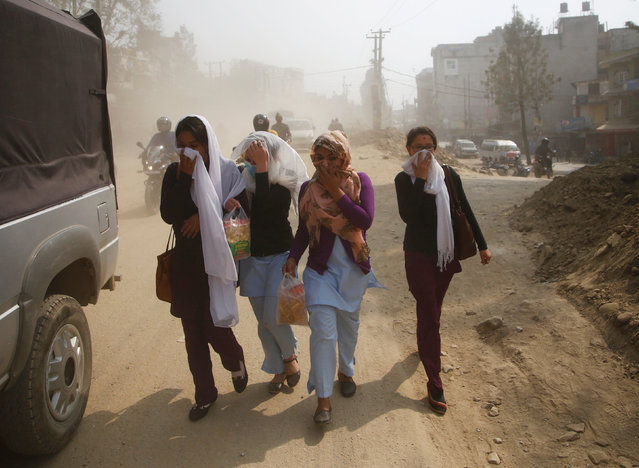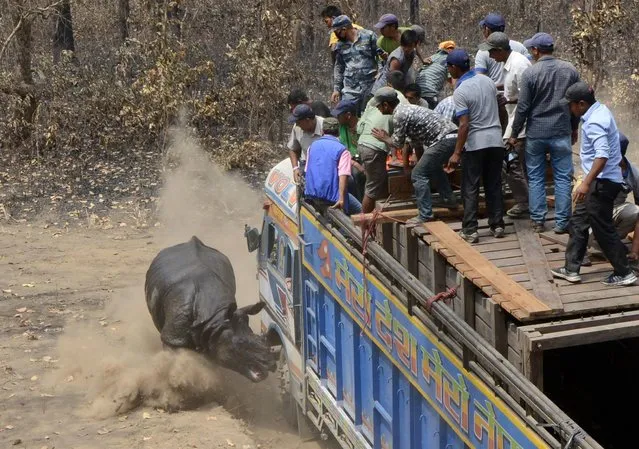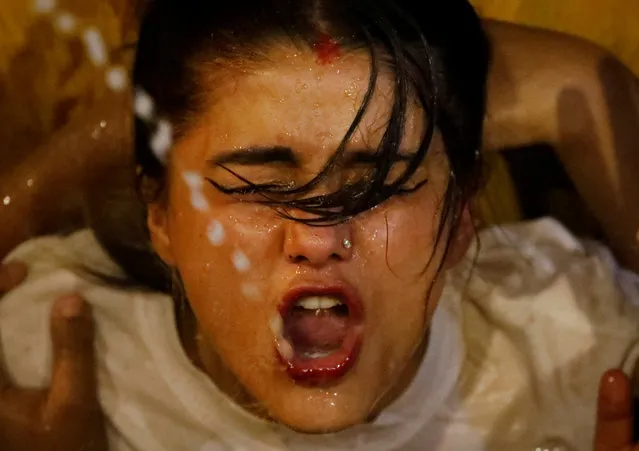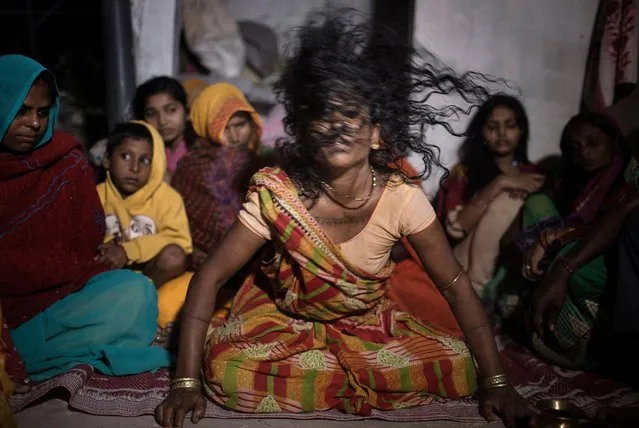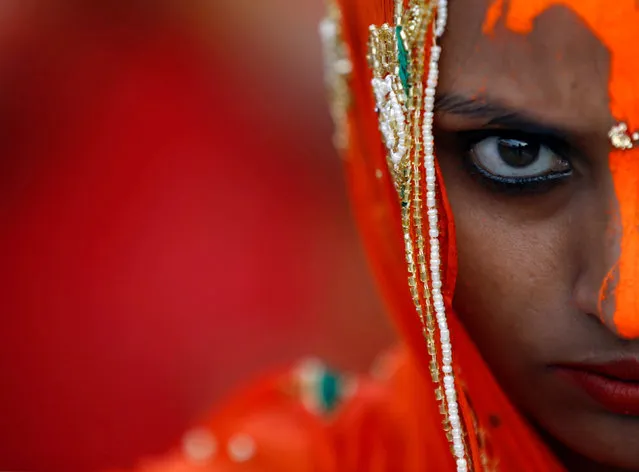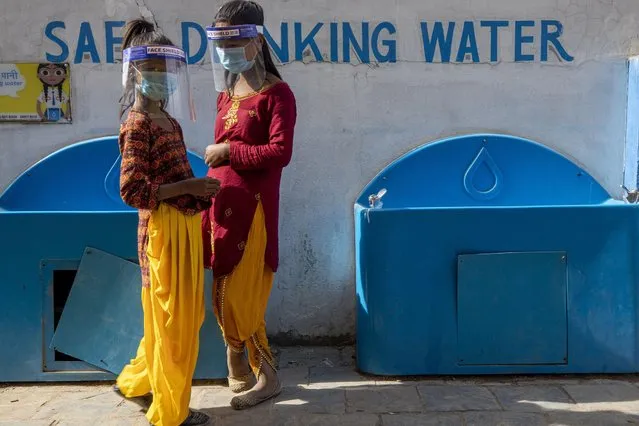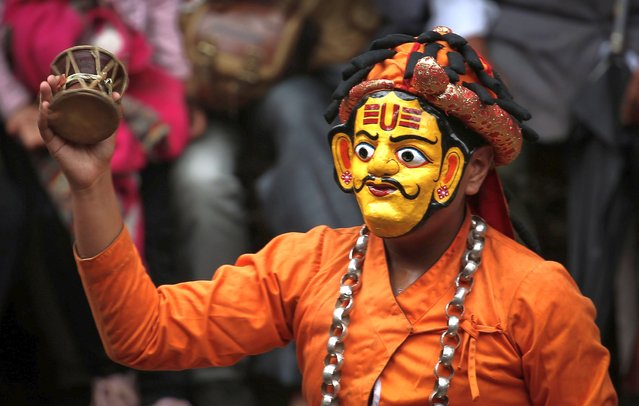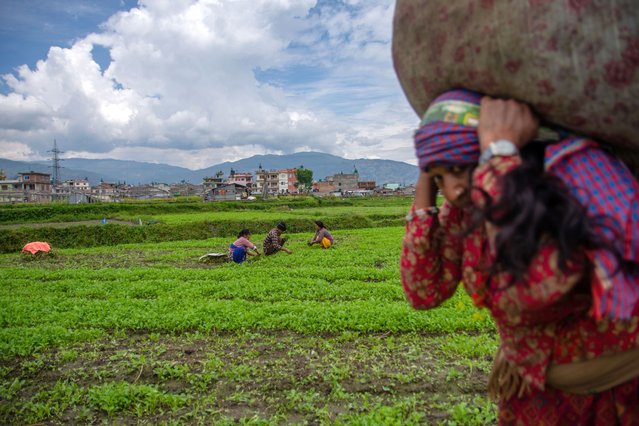
A woman returns home carrying vegetable on her back (foreground) while other farmer works on vegetable field (background) during the 43rd day of the lockdown imposed by the government as a preventive measure against the spread of COVID-19 coronavirus, in Kathmandu, Nepal on Tuesday, May 5, 2020. (Photo by Rojan Shrestha/NurPhoto via Getty Images)
12 May 2020 00:01:00,post received
0 comments

